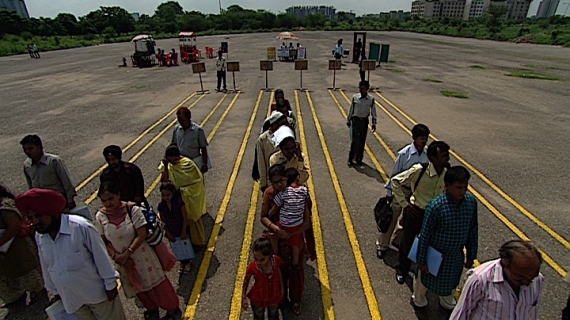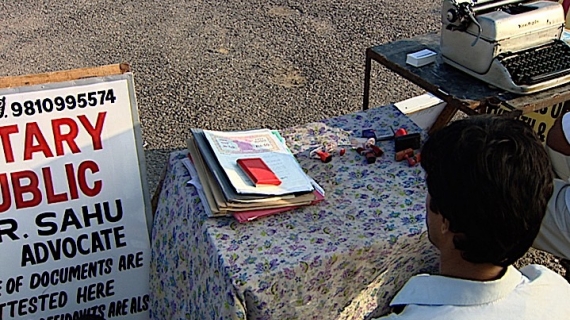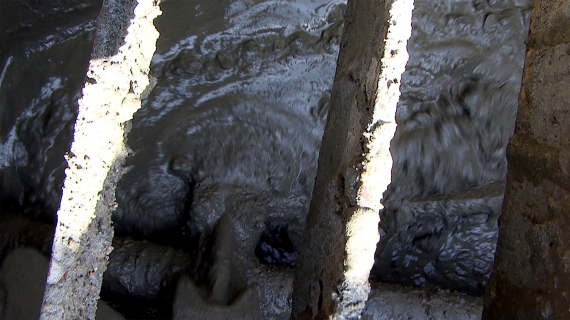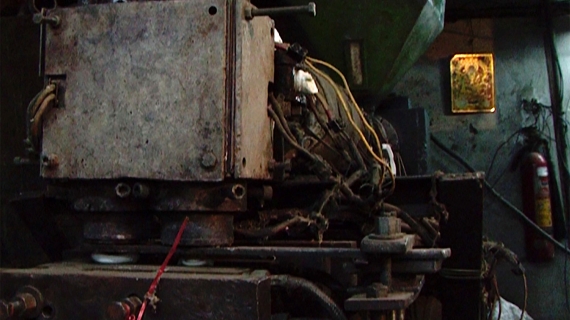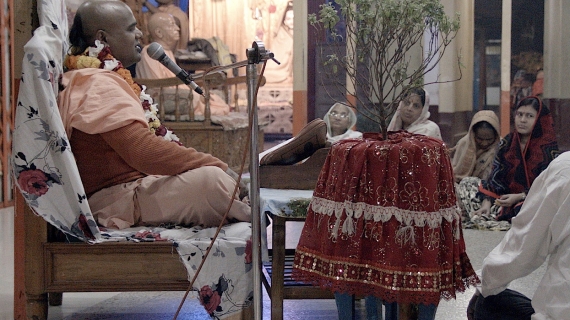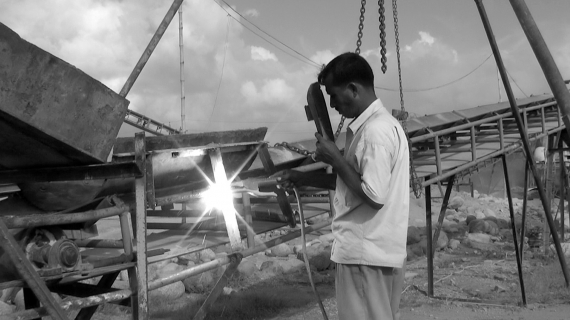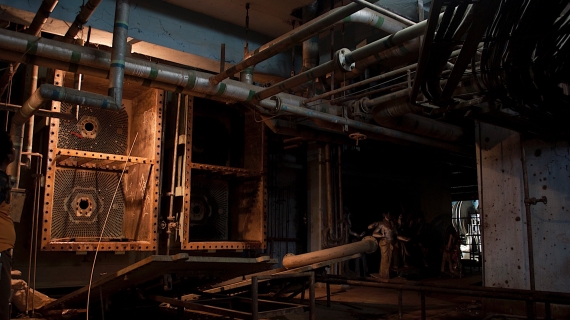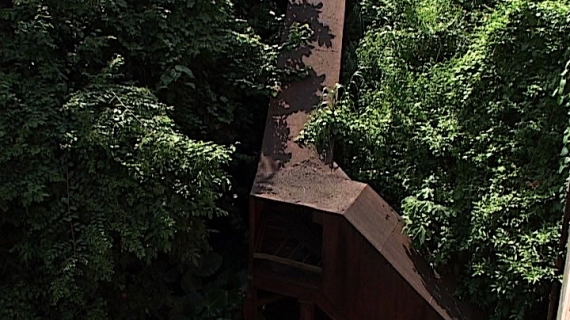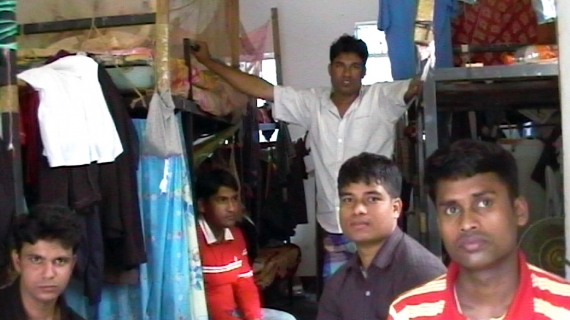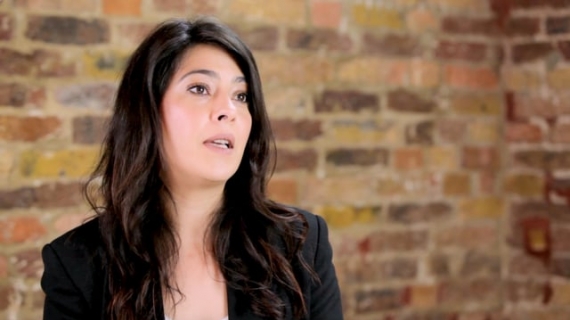Changing Places is a series of exhibitions staging contemporary artists’ moving image within historic buildings across the country. The Roundhouse in Birmingham is one of eight venues on the nationwide tour, creating a unique opportunity to see one of Birmingham’s hidden gems before restoration.
The national tour features artists who live in, work in, or retain a connection to Bangladesh, India or Pakistan. Their films, photographs and sound works cover a range of perspectives and situations, from global migration and environmental impacts, to the individual who navigates and responds to shifting social and economic circumstances. Through the pairing of specific sites and artworks, Changing Places bridges the gaps between the industrialisation currently occurring across South Asia, and the places in Britain where the blueprint began.
Changing Places will also form one of the stops on the Stand Up Paddleboard canal tours, taking place on 22 & 23 July 2017. The tours explore the history and rejuvenation of the Icknield Port Loop whilst gliding through the water. Places are limited, booking essential through B-ROW.
Read more about the artworks showing at the Roundhouse below.
Showing on the ground floor, Omar Chowdhury’s STONEWORK evokes the important role of the Roundhouse in Birmingham as a gateway for Rowley Rag – the stone that was used by workers to repair the city’s streets. STONEWORK also blurs the line between human and machine. Its hypnotic pace gives human characteristics to ‘escaping’ stones and ‘sighing’ machinery, while the workers slip into a mechanised stupor.
Ravi Agarwal’s photographs, titled Capital in Transition, capture the dilapidated Birla Textile Mill in Delhi, India. In 1996 the Mill was ordered shut by the Supreme Court citing pollution laws. This left an empty space of approximately 90,000 square metres of prime land. There is now a proposal to turn the site into offices and a shopping centre, as ‘capital’ finds a constant revival. With the Roundhouse also sitting on the verge of renovation and transformation, the transition of both of these spaces into sites of commerce and leisure reflects a like-minded shift in both societies.
On the upper floor, Bani Abidi’s six screen video installation, Funland, depicts Karachi, the main sea port of Pakistan. The city is home to the country’s largest corporations involved in textiles, shipping, the automotive industry, advertising and medical research. The effects of industrialisation are as evident in Karachi as they would have been formerly in Birmingham, with both cities undergoing infrastructural development at a rapid pace. Abidi’s work highlights a resulting tension in a series of vignettes that take us to a deserted amusement park, built in the 1970s, now designated for closure to clear the way for the construction of a landmark skyscraper, footage of a 1950s cinema burnt down in protest and a library that is hiding 70 per cent of its collection.
Read more about the Changing Places tour.
Read FVU director Steven Bode's take on the exhibition.
Image: Changing Places at Roundhouse in Birmingham. Showing Funland by Bani Abidi which was commissioned for the 8th Berlin Biennale. Photographer: Jana Eastwood.
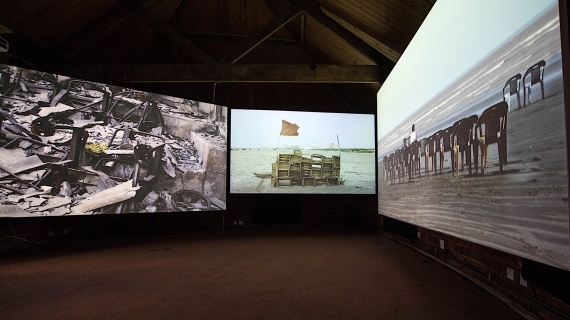
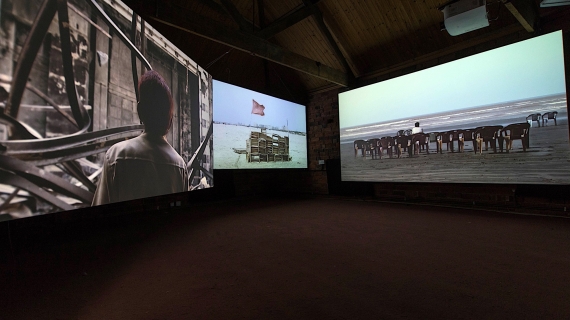
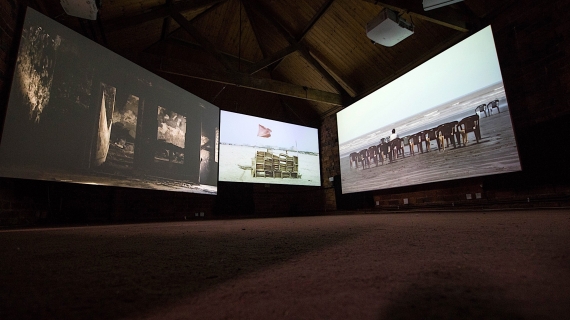
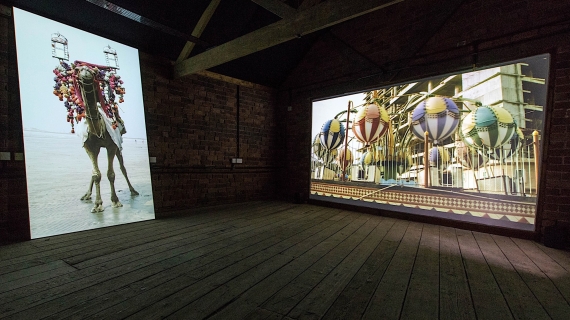
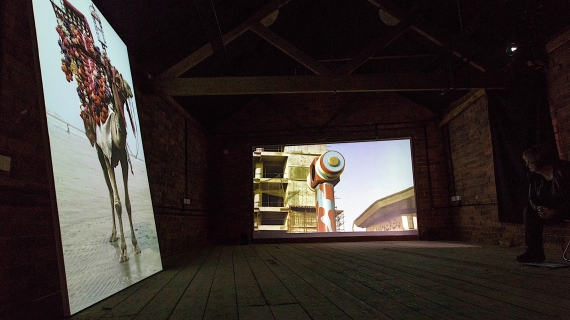
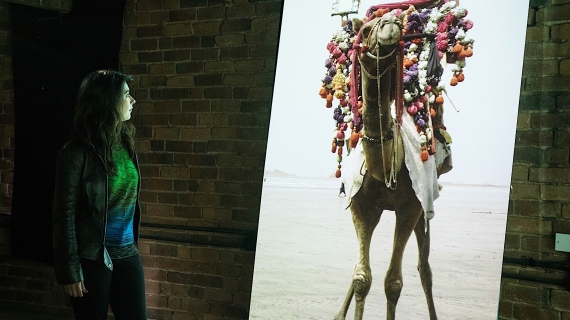
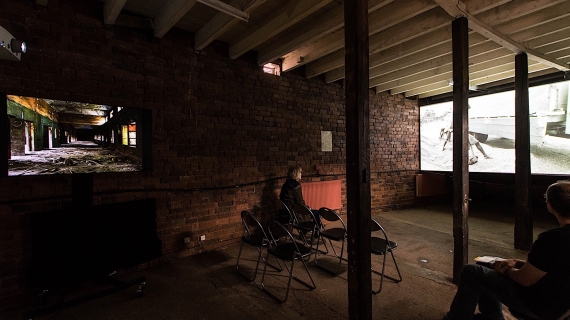
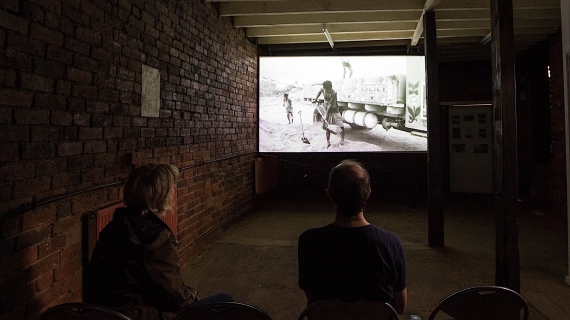
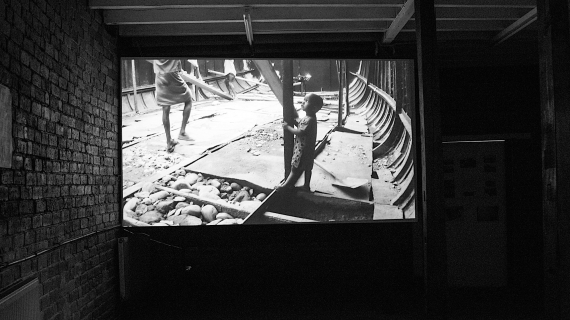
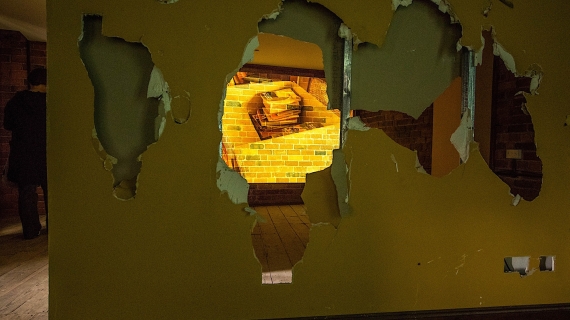
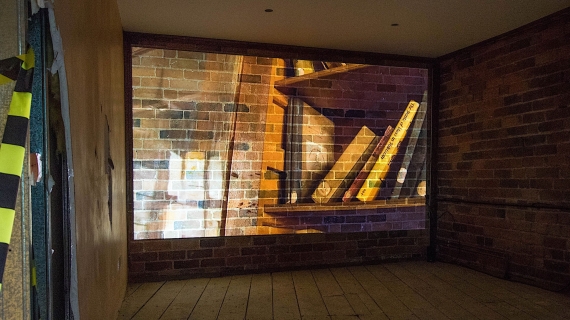

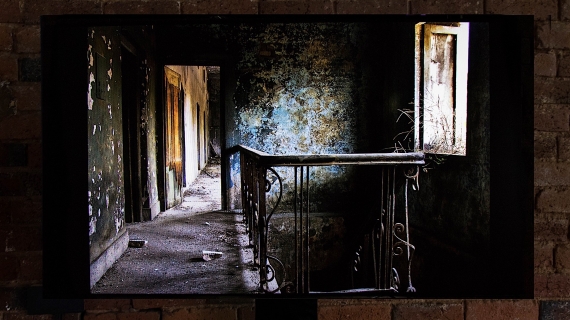
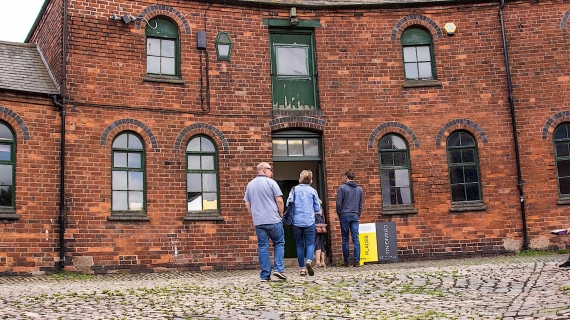
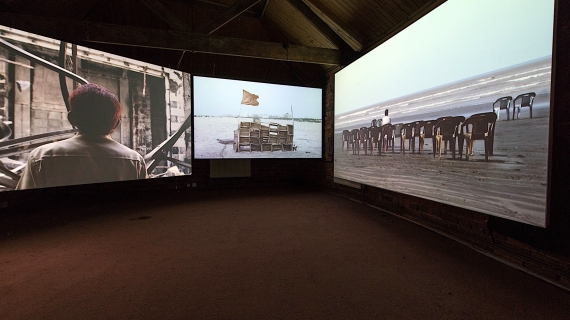
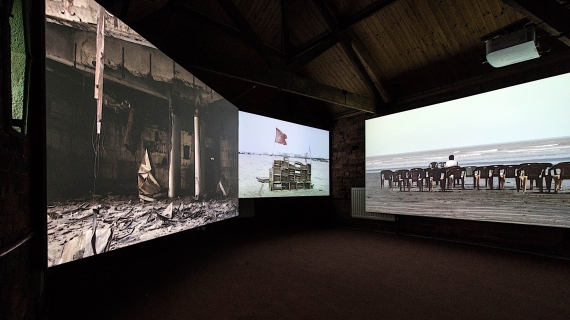
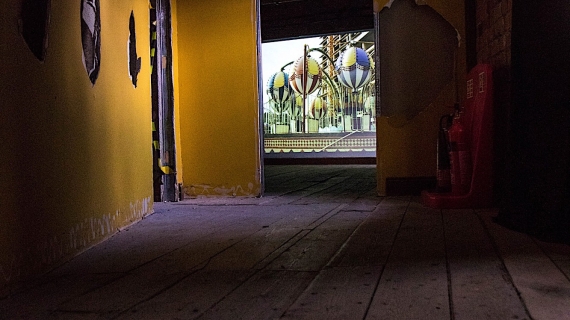
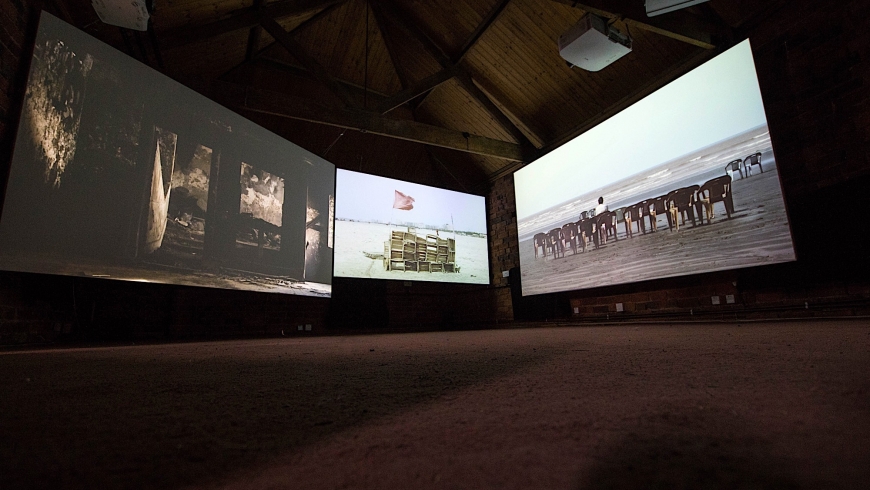
_570_320_c1.jpg)
